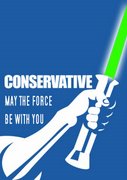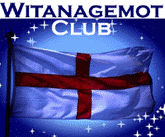GENEVA (Reuters) - Top negotiators from the United States and North Korea met on Saturday for two days of talks meant to advance an international drive to end Pyongyang's nuclear program.
U.S. Assistant Secretary of State Chris Hill and his North Korean counterpart Kim Kye-gwan did not speak to the press on arrival at the U.S. mission in Geneva, where the first day of the weekend talks began.
Their session, aimed at normalizing relations between the countries that fought each other in the 1950-53 Korean War, is expected to focus on how the Stalinist state will disable and account for its nuclear facilities, as promised in a February "six-party" deal.
Hill has also signalled Washington was ready to talk about dropping North Korea from its list of state sponsors of terrorism. That designation imposes a ban on arms-related sales and keeps North Korea from getting some types of aid.
"We will be figuring out at what stage that could be done," he told reporters on his arrival in the Swiss city on Thursday. "I'm not prepared to say precisely when it could be done at this point, but obviously it's an important issue with respect to our working group."
Hill is due to hold a news conference after Saturday's session, and at the end of the weekend meetings on Sunday. Kim has not scheduled any formal encounters with the press. He told Reuters Television at the North Korean mission late on Thursday: "It should be a good meeting, I hope."
North Korea agreed in principle in 2005 in six-way talks with South Korea, China, Japan, Russia and the United States to abandon its nuclear program in return for economic and diplomatic benefits, though progress has been slow since.
Under a February 13 deal between the six countries, North Korea said it would disable its nuclear facilities and give a full accounting of its entire nuclear program, though details of how it would do so have not been made clear.
U.S. officials believe that North Korea, which tested a nuclear device in October, may have enough nuclear fuel to make more than eight or nine atomic weapons. Hill stressed that the United States wanted to see details of North Korea's uranium enrichment in its full declaration.
The weekend talks, part of a series of bilateral meetings North Korea is holding as part of the six-party framework, are also expected to touch on the fate of Japanese citizens abducted by North Korea -- an emotive issue in Japan.
Pyongyang admitted in 2002 that its agents had kidnapped 13 Japanese, five of whom have since been repatriated. North Korea has said the other eight are dead. U.S. President George W. Bush has supported Tokyo's call for more details about their fate.
Hill sidestepped questions about whether international diplomacy should also be employed in other areas where nuclear programs have emerged as a concern, such as Iran.
"We have a tough situation in Northeast Asia. This nuclear issue is a tough one. We're trying to solve it the best way we can. If there are lessons to be learned, if there are positive lessons, that's excellent. But I would caution against people thinking that you can take one solution and use it everywhere."









No comments:
Post a Comment